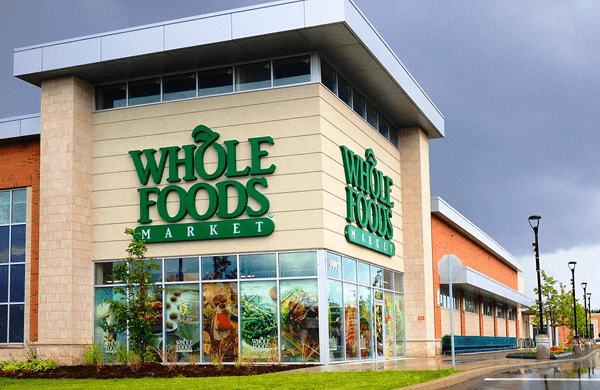Retail IT: The Projected Impact of Amazon's Whole Foods Acquisition

- What would this mean for the brick-and-mortar grocery chain?
- What would this mean for Amazon's current delivery service, Fresh?
- How would this all impact other food stores and retailers in general?
- Is Amazon looking to bring its "just walk out" technology to Whole Foods markets?
- And, when will our organic almond milk and gluten-free bagels be delivered by drones via a touch of a Dash button or a shout to Alexa?

Like with many acquisitions, there are currently more questions than answers. Industry watchers, however, can start to see what's next for consumers and retailers based on Amazon's recent moves.
Website Magazine connected with Prathap Dendi, who is the general manager of IoT and emerging technologies at AppDynamics, to learn more about the projected impact the Amazon-Whole Foods duo will have on retail IT now and in the near future.
What do some of Amazon's recent moves (Amazon Go, AmazonFresh Pickup, Amazon Wardrobe) tell us about the future of artificial intelligence in shopping?
Dendi, AppDynamics: Amazon's recent moves around artificial intelligence (AI) in shopping tell us that we should expect to see a dramatic increase in the use of AI even more broadly than shopping.As Amazon customers begin to interface and rely on AI in their daily lives, they'll come to expect that high level of service in every aspect of their digital lives. These customer expectations will push businesses in every vertical to deliver the immediate user experiences demanded by these connected customers. But as this happens, the challenge of managing the performance and satisfaction with each user becomes ever more critical to the success of every business.
Similarly, how do you predict Amazon will use its automation technology and its Whole Foods acquisition to change the grocery industry?
Dendi, AppDynamics: While Amazon is widely regarded as a leader in automation and digital services, they are also a best-of-breed logistics company. This acquisition could seriously impact the grocery business model. Grocers will face the huge task of meeting the wildly high customer experience bar that Amazon has set, while food providers, farmers, butchers and cheesemongers will reap the benefit of the supply chain disruptive.
What do all these advancements mean for customer expectations?
Dendi, AppDynamics: Customer expectations have never been higher. We recently surveyed 1,000 people in the U.S., U.K., Australia, France and Germany and found that two thirds of people have rising expectations for digital performance, showing that businesses can expect consumer pressure to grow. What's more, consumers aren't willing to keep using an app or website if doesn't meet their high expectations. In fact, 50 percent of consumers have deleted an app after just one use. Further, 80 percent of people have deleted an app or abandoned a website when it didn't meet their expectations. This tells us that the bar has been raised, and poor performing apps can torpedo a businesses best efforts if the customer experience is not a consideration during the entire development lifecycle.
Further, what implications will Amazon's advancements have on an everyday retailer's infrastructure?
Dendi, AppDynamics: Amazon moving into brick-and-mortar retail signifies another shift one that is embracing two kinds of shoppers. This move will restructure distribution systems and the entire retail experience as it brings together two kinds of shoppers those who want a high-touch experience and those that don't. From a retailer perspective, this means that if brands aren't willing to deeply invest in providing great customer experiences, they will be in for a tremendously rough ride. Even in-person retailers must ensure that their complex, interconnected applications are performing seamlessly, and that the massive amount of data being generated by customers are being collected, monitored and analyzed in a way that will continuously optimize business decisions.
What will be required from retailers to compete?
Dendi, AppDynamics: To remain competitive, retailers must be deeply committed to enhancing the customer experience in every step of the journey. In a digital business making each customer interaction with your digital storefront successful should be a the core of the business objectives. Providing a great customer experience is much more than monitoring if an app is up or down. It requires companies ensuring that their complex, interconnected applications are not only performing seamlessly, but that the massive amount of data being generated by these apps are being collected, monitored and analyzed in a way that will continuously optimize business decisions.
Read more Amazon coverage:








